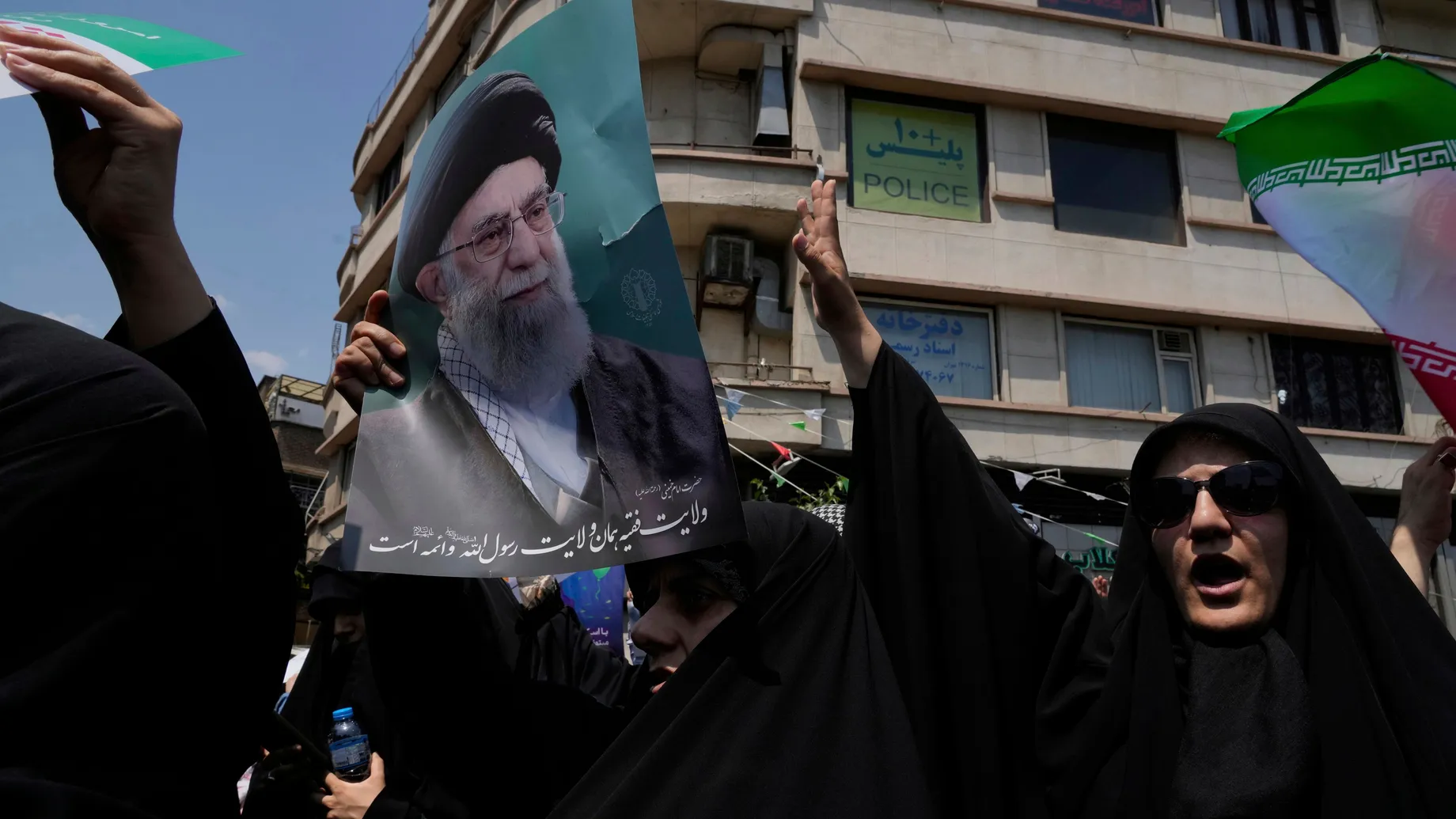Following Israel’s large-scale airstrike on Iranian territory, the leadership of the Islamic Republic rushed to issue threats of “bitter revenge.” Supreme Leader Ali Khamenei took to platform X, writing in Hebrew: “Israel’s leadership has imposed a bitter and painful fate upon itself.” He added that the “mighty hand of the armed forces of the Islamic Republic” would not let them escape unpunished.
Yet, despite the fiery rhetoric, the truth is hard to conceal: Iran’s regime is facing what Der Spiegel calls its gravest crisis since the Islamic Revolution of 1979. This is a systemic breakdown — military, political, and economic — and it raises the possibility of the regime’s collapse.
Operation “Rising Lion”: A Historic Opening for Israel
From the Israeli perspective, a rare opportunity has emerged. On the night of June 13, Israel launched a sweeping military operation codenamed “Rising Lion,” striking targets deep within Iran. This marks an escalation well beyond previous episodes in the long shadow war between the two states.
After Hamas’s terrorist assault on Israel on October 7, 2023, and the subsequent wars in Gaza and Lebanon, Iran and Israel are now locked in direct confrontation. In April and October 2024, Iran launched missiles toward Israeli territory, prompting retaliatory strikes from the IDF. But the latest Israeli assault represents a turning point.
Tehran’s Aura of Fear is Fading
The Iranian regime has long relied on a network of proxies — Hamas, Hezbollah, Shia militias in Iraq, and the Houthis in Yemen — to exert regional pressure and deter attacks. Yet Israel has methodically begun dismantling this structure. In recent months, Israeli forces and intelligence agencies have eliminated much of Hezbollah’s senior leadership, killed dozens of commanders, and destroyed vast portions of its missile stockpile.
Even Iran’s own ballistic missile arsenal, estimated at 3,000 missiles, no longer instills the same fear. Israel has proven capable of intercepting many of them. In October 2023, Israeli fighter jets reportedly moved freely through Iranian airspace, while Russia’s modern S-300 air defense system failed to respond. This suggests Iran’s vulnerability has only deepened.
“Iran is far from being a peer competitor to Israel,” wrote Charles Lister, a security expert with the Middle East Institute. “It lags decades behind in defense.”
A Fragile Regime from Within
Internally, the Islamic Republic is fraying. The economy is collapsing under the weight of international sanctions, with inflation above 30%. Khamenei, now 85, has ruled since 1989 and is physically frail — he cannot move his right arm due to an assassination attempt in 1981. He has survived the Iran-Iraq war, the 2009 Green Movement, and mass protests in 2022 — but the foundation beneath him is shifting.
There are no reliable polls in Iran, but signs of public disillusionment abound. Only 40% of eligible voters participated in last year’s presidential election — the lowest turnout on record. Many now believe the regime’s end is not only possible but imminent.
“I couldn’t sleep all night. The strikes were not far from where I live,” wrote a 49-year-old alternative medicine practitioner in Vanak, northern Tehran, in a message to Der Spiegel. “I don’t think the regime is finished just yet, but we’re heading there.”
A 24-year-old political science student at the University of Tehran believes the collapse is just around the corner. His message reflects both analysis and hope: “It was obvious that dismantling Assad, Hezbollah, and Hamas was a preparation for today — the elimination of the Iranian regime. It has made too many mistakes.” He refrained from predicting Tehran’s next moves but concluded: “I expect the regime to collapse in days or weeks.”
“Everyone knows the regime will fall — we’re just waiting”
A 32-year-old IT engineer from Tehran, speaking anonymously, echoed this sentiment: “I’m not afraid. Everyone knows the regime will fall — we’re just waiting.” Still, he fears the collapse could turn violent. He likened the situation to Israel’s offensive against Hezbollah: “They’re using the same strategy here — take out the top tier, then work their way down until the entire Revolutionary Guard is out of action.”
Targeted Killings Hit Iran’s Command Core
Israel’s strikes have devastated Iran’s military leadership. State media confirmed the deaths of:
- Hossein Salami, Commander-in-Chief of the Islamic Revolutionary Guard Corps (IRGC)
- Gholamali Rashid, head of the IRGC’s Khatam Al-Anbiya HQ
- Mohammad Bagheri, Chief of the General Staff of Iran’s Armed Forces
- Six senior nuclear scientists
- Ali Shamkhani, Supreme Leader Khamenei’s powerful security advisor
According to media reports, at least two dozen densely populated neighborhoods in Tehran were hit. Explosions rocked major civilian areas. The Natanz nuclear site — a key uranium enrichment facility — was confirmed hit by the International Atomic Energy Agency (IAEA). The Bushehr and Isfahan plants were reportedly spared. While casualty numbers remain unclear, dozens are feared dead.
As Der Spiegel notes, Israel appeared to possess precise intelligence on its targets, suggesting deep infiltration into Iran’s political and security networks.
“Iran has suffered an intelligence defeat of existential proportions,” said German-Iranian political scientist Ali Fathollah-Nejad. “It exposed the vulnerabilities of Iran’s military and political infrastructure — and its highest leadership.”
The Diplomacy Clock is Ticking — and Trump is Watching
Iran’s foreign minister Abbas Araghchi declared the strike “an act of war.” However, given the scale of the leadership decapitation and destruction of air defense systems, Tehran may simply lack the time and means for a meaningful response.
Much now depends on U.S. President Donald Trump. Over recent weeks, he had pushed for a new nuclear agreement — but insisted that Iran halt uranium enrichment entirely, a red line for Tehran. With diplomacy stalled, Trump appears to support a more aggressive strategy.
He publicly endorsed the Israeli strike, writing that Iran “had its chance” and squandered it. Now, he warned, it will “pay the price.” He also hinted that “more brutal attacks” are already in the pipeline.
Whether Iran is still willing to negotiate remains to be seen. A political scientist involved in earlier diplomatic efforts told Der Spiegel on condition of anonymity: “We were heading toward a diplomatic solution. Israel has destroyed that path. If this isn’t acknowledged, the spiral of violence will continue.”
This article was prepared based on materials published by Der Spiegel. The author does not claim authorship of the original text but presents their interpretation of the content for informational purposes.
The original article can be found at the following link: Der Spiegel.
All rights to the original text belong to Der Spiegel.


















